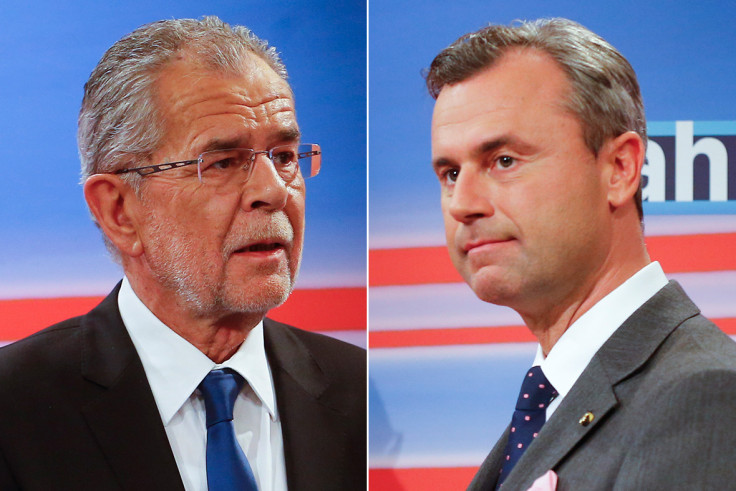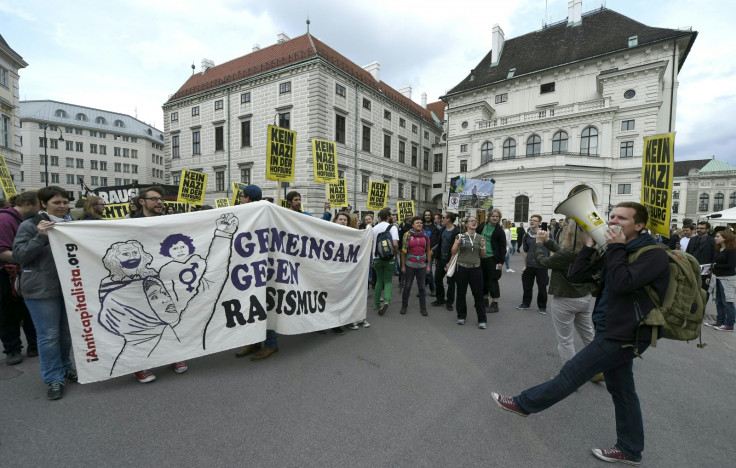There's an international sigh of relief as the Far Right fails to win in Austria

The frustration at the lack of a clear result on Sunday (22 May) evening gave rise to a tense Monday of waiting and guessing as the sizeable quantity of postal votes were added up. After Sunday night's polling count yielded a near draw, independent candidate and former Green Party leader, Alexander Van der Bellen, has won by a narrow margin of just 0.6% (50.3% to the Freedom Party candidate, Norbert Hofer's 49.7%).
Noises had already been heard questioning the reliability of postal voting – there had been cases of falsified signatures, or of ballot cards that were never received, apparently. A social media initiative was collecting responses yesterday morning to sniff out any irregularities. By and large this was a line of conspiracy theory being espoused by FPÖ voters, anxious that the postal vote would cost their candidate his victory. It remains to be seen whether this line of enquiry will continue.
At the FPÖ's post-election party Hofer was in bullish mood – Austria's possibilities were two-fold, he said. Either they would see him as their new president, or indeed, they could have an FPÖ chancellor in two years' time. Hofer nods here to the charismatic and even less guarded leader of the party, Heinz Christian Strache. Setting his personal sights on the next presidential election in 2022, Hofer went on to promise that four years after the national elections of 2018, Austria would then indeed have a Freedom Party president, as well as a Freedom Party chancellor.
Hofer let it slip in one of the many head-to-head interviews (or TV 'duals', as the Austrian broadcasters ORF dubbed them) that Austria would yet come to see what a president is capable of, should he be elected to office. The authoritarian undercurrent has mostly been smoothed over by Hofer's Cheshire Cat smile and man-of-the-people style, but his tough stance on immigration and traditionalist views have been expressed in stark terms.
This has been enough to motivate his ideological opponents.The tactical vote has been significant, with thousands of Austrians casting an anti-Hofer rather than a pro-Van der Bellen vote. Van der Bellen's election catch-up in the last month has been nothing short of meteoric. Van der Bellen has been the tortoise who only just overtook the hare, and he's had an election committee of politicians, actors and musicians behind him to keep him company and show support.
The anti-Hofer sentiment started to translate into unofficial civil action before Sunday's elections, with an impromptu demonstration taking place in Vienna last Thursday. Around 700 protesters assembled on the Ballhausplatz carrying banners with anti-fascist and anti-racist slogans expressing their determination that there should not be a 'Nazi' in the Hofburg Palace.

The choice of Thursday echoed the Thursday demonstrations against the coalition government of Freedom Party and Austrian People's Party, inaugurated in February 2000. The FPÖ under H. C. Strache has perhaps made fewer slips than it did under its former, high-profile agitator, Jörg Haider, but its election slogans have left no doubt as to its extremely conservative, 'Austria First' campaigns. Hofer has been upfront about his determination to stop the 'invasion of Muslims' to Austria, he has been clear about his anti gay-marriage stance and has questioned other hallmarks of a modern, tolerant, liberal society.
International Protests
The international community has expressed disquiet with Austrian politicians on a number of occasions. The election of former UN Secretary General, Kurt Waldheim, to the Austrian presidency in 1986 produced a mutual stand-off. Waldheim had chosen not to reveal (or had, in his words 'forgotten') some of the details of his World War II experiences. Austria closed ranks and felt affronted at foreigners trying to influence their choice of president. Meanwhile, Waldheim was placed on the US watchlist and could not travel to the States.
In 2000, following the huge success of Jörg Haider's FPÖ and its subsequent share of government, the European Union placed temporary sanctions on Austria pending an investigation into the 'government's attitude to common European values, in particular regarding the rights of minorities, refugees and immigrants', and 'the development and political nature of the FPÖ'.
The media flurry surrounding Austria's election shows how desperately the country needs the calm, uniting voice of Van der Bellen
Jean-Claude Junker, the president of the European Commission, warned some weeks ago that Hofer's eventual success might have worrying consequences for the EU, but with Far Right parties experiencing an increase in popularity in so many of the EU's member states one wonders whether there would have been the same intensity of sentiment and concern in 2016, if today's election result had gone in Hofer's favour.
The political analysts have been cutting the electoral cake every which way before the final call. Hofer's electoral share was only 37% in Vienna. More women voted for Van der Bellen, more citizens with school-leavers' certificates and with university degrees voted for him, too. More working-class men voted for Hofer.
Van der Bellen was gracious in his acceptance speech. Rather than seeing Austria as divided by all these different demographic criteria, he sees the two final blocks of voters as just two halves of the whole. He has pledged to exercise his duties with care, both within Austria and beyond.
The media flurry surrounding Austria's election shows how desperately the country needs the calm, uniting voice of Van der Bellen. Perhaps the new Social Democrat Chancellor (Christian Kern took over from the failing Werner Faymann only last week) and the Austrian People's Party (ÖVP) can now finally develop strong and attractive social and economic platforms under charismatic leaders who can challenge the populism of the Freedom Party and prevent Hofer's Plan B (H. C. Strache as FPÖ Chancellor in 2018) from coming to fruition.
Allyson Fiddler is a Professor of German in the Department of European Languages and Cultures at Lancaster University. She is currently writing a book on cultural reactions to the Far Right in Austria.
© Copyright IBTimes 2025. All rights reserved.






















